BBC to publish 'right to be forgotten' removals list
- Published
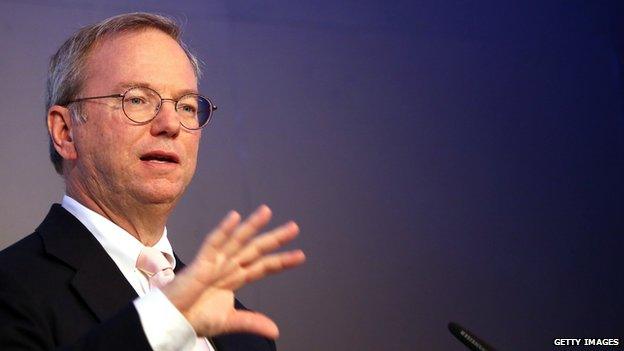
The meeting was hosted by Google chairman Eric Schmidt
The BBC is to publish a continually updated list of its articles removed from Google under the controversial "right to be forgotten" rule.
The ruling allows people to ask Google to remove some types of information about them from its search index.
But editorial policy head David Jordan told a public meeting, hosted by Google, that the BBC felt some of its articles had been wrongly hidden.
He said greater care should be given to the public's "right to remember".
Following the ruling, Google set up a form on its site allowing people to request which links should be taken down.
The European Court of Justice (ECJ) said links that were "inadequate, irrelevant or no longer relevant" should not appear when a specific search - usually a person's name - was made.
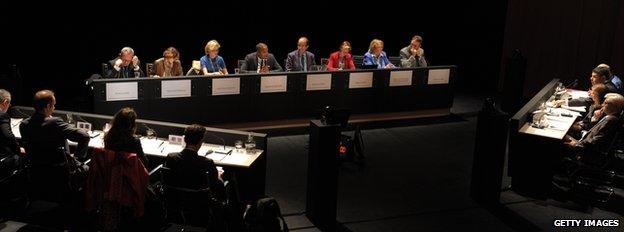
The UK meeting was one of several Google-hosted events around Europe
Google decided to notify affected websites each time a link had been removed.
The BBC will begin - in the "next few weeks" - publishing the list of removed URLs it has been notified about by Google.
Mr Jordan said the BBC had so far been notified of 46 links to articles that had been removed.
They included a link to a blog post by Economics Editor Robert Peston. The request was believed to have been made by a person who had left a comment underneath the article.
An EU spokesman later said the removal was "not a good judgement" by Google.
Real IRA
The list will not republish the story, or any identifying information. It will instead be a "resource for those interested in the debate", Mr Jordan said.
He criticised the "lack of a formal appeal process" after links have been taken down, noting one case where news of the trial involving members of the Real IRA was removed from search results.
"Two of whom were subsequently convicted," Mr Jordan explained.
"This report could not be traced when looking for any of the defendants' names. It seems to us to be difficult to justify this in the public's interest."
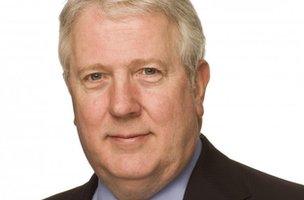
David Jordan said a better appeal process was needed for disputed requests
He suggested that Google implement some changes to the process of making a "right to be forgotten" request - such as requiring the identity of the person to be shared with the publication, on condition of confidentiality.
The meeting, hosted by Google chairman Eric Schmidt, is the latest of several that have taken place around Europe in the past two months. The next, on 4 November, will be held in Brussels.
However supporters of the ruling said the meetings were a "PR exercise" for Google - which would rather not deal with requests - rather than an open debate.
"They want to be seen as being open and virtuous, but they handpicked the members of the council, will control who is in the audience, and what comes out of the meetings," said Isabelle Falque-Pierrotin, head of CNIL - France's data protection body.

Being forgotten
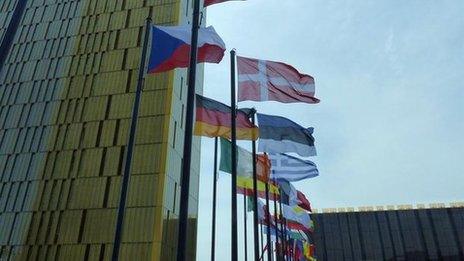
People keen to get data removed from Google's index must:
Provide weblinks to the relevant material
Name their home country
Explain why the links should be removed
Supply photo ID to help Google guard against fraudulent applications

Follow Dave Lee on Twitter @DaveLeeBBC, external
- Published30 May 2014
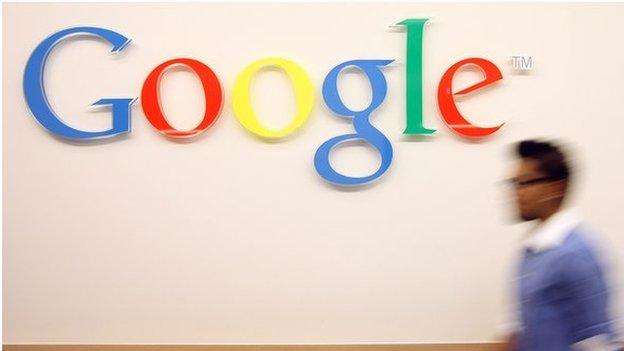
- Published13 May 2014
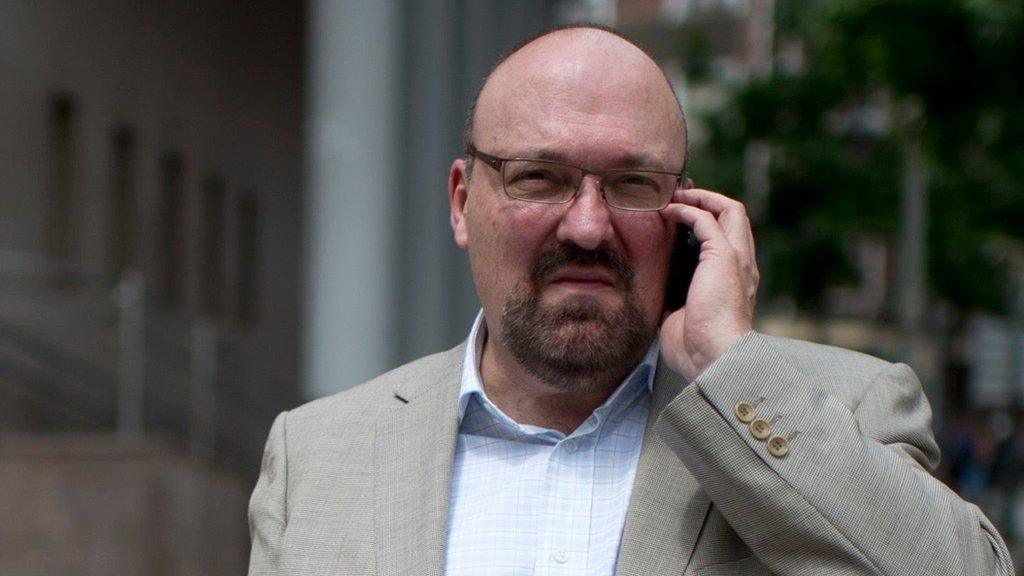
- Published13 May 2014
